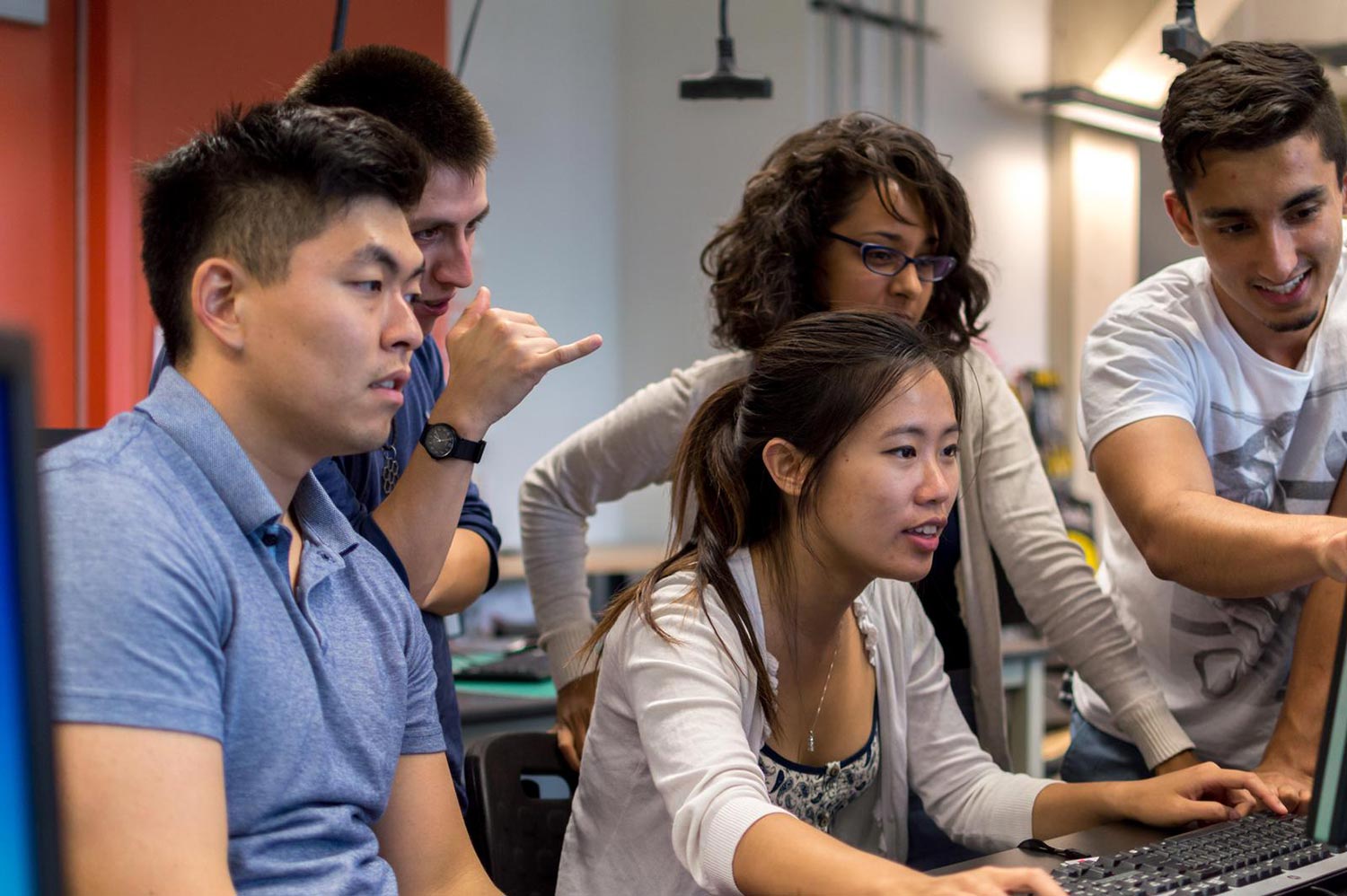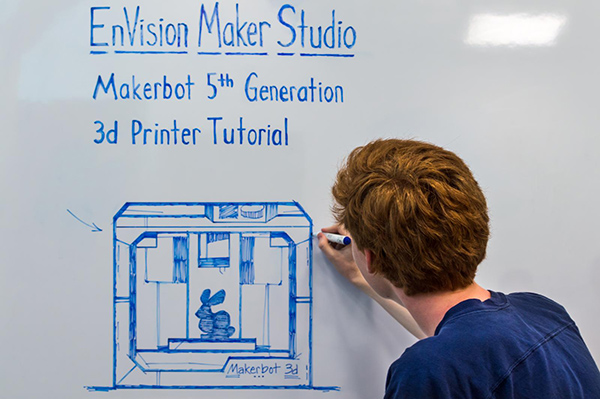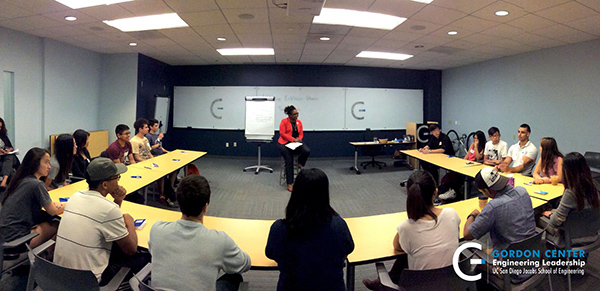
EnVision Interns: The Power of Volunteer Student Teams for a Maker Space
Published Date
By:
- Deborah Osae-Oppong
Share This:
Article Content

LED lights in the shape of a 3D printer head light up the word “3D” in the window of the EnVision Arts and Engineering Maker Studio, visible to passersby. Besides being visually appealing, the display is also providing information: the speed of the animation increases depending on how many 3D printers are being used in the Maker Studio.
The LED interactive display art was one of the projects that a team of interns worked on over the summer as part of a new summer internship program.
The Maker Studio was opened in January 2016 with a mission to provide close to 7,000 undergraduate engineering and visual art students with a space where theoretical coursework meets hands-on experience. Since it’s opening, the Maker Studio has hosted just over 600 students in experiential learning classes from 5 engineering departments and the Visual Arts department and just over 1,800 students during supervised open access hours.
The internship program was implemented because of an outpouring of interest from students who wanted to apply what they were learning in classes on in a team-based, autonomous environment.

“For such a large group of students encompassing 10 majors, we did not want to leave the culture formation to chance, said Jesse Dewald, the staff director of EnVision. “A survey of students identified that many users of the Maker Studio used only a small number of tools in the space,. We wanted to create a set of tutorials and example projects that would give new students the confidence to use everything that is available to them. Just as importantly, We wanted to create a group of students that could become our leaders and mentors to other students.”
The internship program was implemented during the two 2016 summer sessions.
Of more than 200 applications to the program, 99 were accepted. The students were divided into groups over the two summer sessions, each with a self-identified “team lead” that organized scheduling and deliverables and met on a weekly basis to provide progress reports.
The groups were assigned to one of ten projects; two of the projects were developing curriculum for introductory, hands-on chemical engineering and mechanical and aerospace engineering classes. The others were centered around making EnVision more user friendly and less intimidating, such as designing a collaborative space across the hall from EnVision, creating online tutorials and “warm-up projects” for some of the equipment, and week-long mini-projects.
“The projects are designed to help students get over the intimidation factor of not knowing how to use equipment,” said Dewald. “Some of the students had only intro-level experience with the engineering tools in EnVision. By creating tutorials and example projects, the interns were able to learn by doing, which gave them greater confidence to overcome the obstacles they encountered.”
Tutorials and example projects were created for EnVision’s 3D printers, laser cutter, vacuum former, and basic shop tools such as soldering, drilling and sanding.
Gordon Center Leadership Workshop
“After the first session, we noticed that the team leads that had never been in a position of leadership before were having a hard time managing different personalities and expectations,” said Dewald.
Dewald looked to the Gordon Engineering Leadership Center on campus for advice. Ebonee Williams, the Center’s director, offered to run a workshop for the team leads.

The goal was to make a more legitimate internship experience and provide the team leads with leadership guidance. During the seminar, students were asked to think about their own values and share them with others in the room so that they could understand that people value very different things, and are in the program for different reasons.
“I think my team struggled with a lot of issues that were brought up during the seminar, and it was really satisfying to put a label on what had happened,” said Michael Wang, a third year environmental engineering major. “Prior to the workshop, I had been part of a couple of teams, and I had a vague idea of what it meant to be a good leader, and what it meant to be in a team. However, I was never able to connect the dots, and the seminar gave me an epiphany.”
One of the lectures focused on Tuckman's stages of group development: forming, storming, norming and performing. “Now that I understand that there is a process for teams to become successful, I can now identify the problem and tackle it,” said Wang.
“As a team lead, I found the leadership workshop at Gordon Center quite worthwhile,” said Mustafa Gobulukoglu, a third year computer engineering major. “Not only did it provide plenty of insight into team dynamics and management, but also analysis of personal values and their affect on the various stages a team undergoes while tackling a project.”
The result was more people-centered progress reports, rather than project-centered, said Dewald. “Every student in the first session would have benefited from the seminar at the beginning of their internship. Not only are we reinforcing hands-on curriculum, we’re taking young engineers and giving them the leadership experience companies want to see.”
Share This:
You May Also Like
Stay in the Know
Keep up with all the latest from UC San Diego. Subscribe to the newsletter today.


